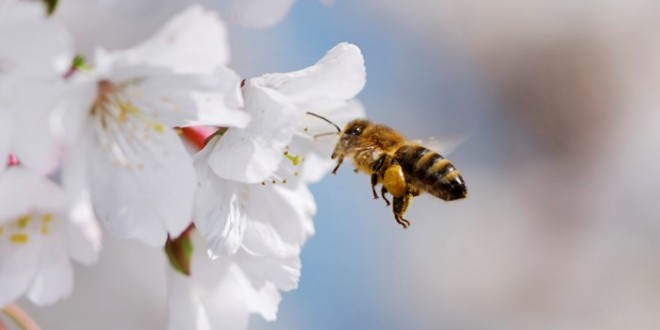Caffeine is the only way some people can start their morning, and as it turns out it could be the same for bees as well.
Scientists say that honeybees find the energising drug so addictive that plants may be lacing their nectar with caffeine to boost their own flower pollination activity.
Dr Margaret Couvillon, who led the research at Sussex University’s laboratory of apiculture and social insects, explained that bees can become so hooked on the caffeine that they are willing to accept sub-standard food just to get their fix and will ignore nectar that does not contain the drug.
She said: “Some plants, through the action of a secondary compound like caffeine that is present in nectar, may be tricking the honeybee by securing loyal and faithful foraging, perhaps without providing the best quality forage.
“Caffeine is found in high concentrations in the leaves, seeds and stems of plants and also at a lower concentration in the nectar of about half the plant genre, including citrus fruit plants and tea plants.”
The study tested bees’ responses to a sucrose solution with field-realistic doses of caffeine or without.
Findings showed the caffeine caused honeybees to forage more and to direct other bees to the caffeinated forage more frequently.
Bees were also more persistent about returning to sites where they had previously found caffeinated nectar, even after the feeder had run dry and less inclined to search for other resources.
Agencies/Canadajournal
 Canada Journal – News of the World Articles and videos to bring you the biggest Canadian news stories from across the country every day
Canada Journal – News of the World Articles and videos to bring you the biggest Canadian news stories from across the country every day



